Interview by Diana Di Mauro
Last month I was invited to trace at Factory Theatre in downtown Toronto. It’s a brand-new, one-man-two-piano-play written, composed and performed by Jeff Ho, described as,
“A painfully personal story of family and genealogy, trace follows the footprints taken by Jeff’s great grandmother who fled the Japanese in WWII by escaping to Hong Kong, losing one of her two sons during the trek; his mother’s similar pilgrimage to Canada, also with two sons in tow; and by Jeff himself, when he too embarked on a journey, moving from Markham to Montreal to pursue an uncharacteristically Chinese life.”
I was looking forward to seeing how Jeff weaved together this generational story of female strength through classical music. Jeff used music in a symbolic way, of course he used music to set the tone for a scene, but more interestingly he used music to represent the male characters in the narrative. By giving emotional context to familiar tunes and made up works alike, I could sense that the audience was really engaged and delighted by the choice. The inclusion of music also filled out the story and made the scenes come alive.
I wrote Jeff a series of questions that I hoped would inspire some meaningful reflection. I was beyond enthusiastic with his response.
___
Tell me a little bit about yourself, for those who have not seen the play you could mention where your family is from.
My family bloodline began when my Great Grandma fled China to Hong Kong during WWII. From there, two generations of my family was born and raised in Hong Kong. I was no different, I grew up there and moved to Canada with my mother and brother in 2001. In my own journey through life I ran away from home to Montreal at 16 to pursue a life in the theatre, studying at the National Theatre School of Canada, before moving back to Toronto to begin an artistic career.
What inspired you to tell this particular story, which focuses largely on your great-grandmother, grandmother and mother’s lives and their relationship to each other, and you.
I was inspired by the stories, myths, and mysteries that circulated throughout our family. I think as teenagers we all go through identity crises. Some teens learn to socialize, some learn to rebel, and I became obsessed with figuring out how I got here, and why I exist. Through listening, transcribing, and fictionalizing parts of my familial past I began to quite literally trace the courage, strength, and struggles of the women in my family. None of us would be here today if not for my great-grandmother.
I began writing the piece during my time at the National Theatre School and at the time I was working with South African director, Yael Farber, who would ask us, “what truths do your ancestors demand you speak?” Our family has a collective truth in our close relationship with survival and exile, and I felt I needed to honour that, to acknowledge what exactly gave me the strength to pick up and go at a young age. It’s all due to the GUTS that my Ma, Grandma, and Great Grandma had, to defy all odds and survive, live, and laugh towards a better life.
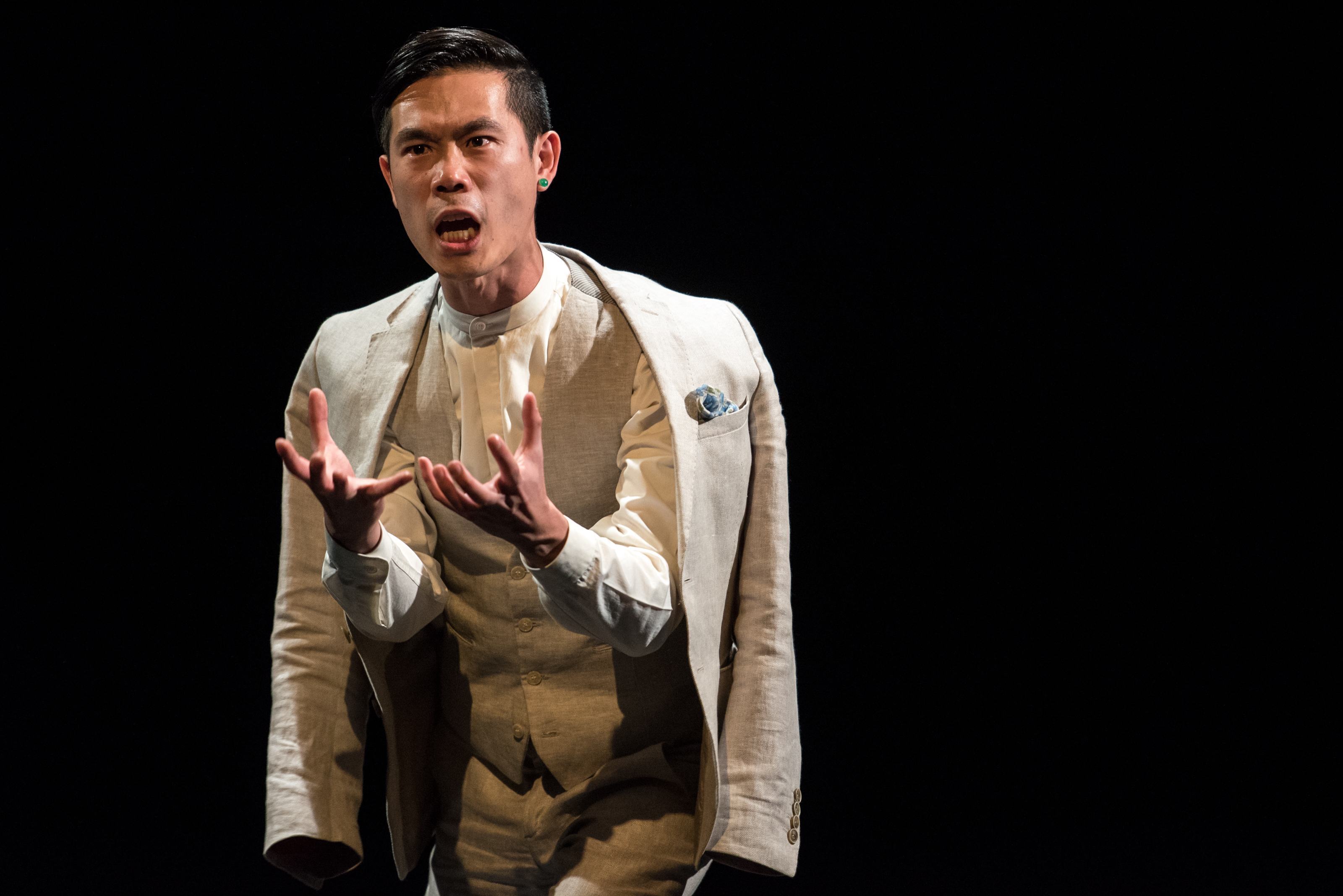
Why did you choose to name the piece trace?
The very first iteration of the piece was a long form poem entitled 731, about the Japanese invasion of China during WWII. In it, I first wrote my Great Grandma’s journey with her two sons, and the word trace/traced was constant, almost like its own metre. When I began working with Iris Turcott, we needed a name to use to apply for grants and what not, and we both looked down at the page and said it has to be named trace. It was there from the very beginning, and even to this day it’s exactly what I attempt to do every night: trace and honour the blood that flows through me.
What brought you to the theatre, did you always have an artistic background outside of music?
I started with the piano at five years old back in Hong Kong. That was my first form of artistic expression and it was certainly a gateway into theatre for me, that rush of live performance.
With the theatre, that didn’t come until I started high school at Unionville High School’s Arts York program. My mother let me audition and attend the program because she believed that it would make me a stronger public speaker and instil in me confidence to battle my shyness. However, it backfired, as I fell deeply in love with theatre, and I am grateful to my high school teacher, Mr. Bieman, who pushed me unbelievably hard to pursue my obsessions. He taught me to treat theatre as deeply as any of my other academic subjects, and to gave me the hope that it’s possible to live a life in the arts. Since then, I studied at the National Theatre School and got a chance to really practise, enhance, and work out my craft with wonderful teachers and support. The learning continues to this very day!
How did you first get connected with Factory theatre?
I first met Nina Lee Aquino, who was then Artistic Director of Cahoots Theatre, back in my 2nd year of theatre school. One day, I pulled her aside and approached her with my poem 731. I just had some ridiculously naive (in hindsight) need to share it with her while she was around. She was entirely graceful, open, and generous enough to humour me, and when I finished reading the piece to her she turned to me and said, “you’re a writer.” So, our relationship began that way and as she moved on to her position at Factory. My script fell in the hands of Iris Turcott, who was then dramaturge at Factory, and literally a month after I graduated, I began working on trace with Iris and Nina. It’s been four years since then, and I’ve worked as a box office manager, a front of house, an actor, an apprentice administrator, and now as writer and performer at Factory…Factory has been a home and nurturing ground for me.
Can you tell me about your work with b current performing arts?
Similarly, as I began reaching out to companies through grants and financial support, b current was the first company to call me up and say “we want to support this with a grant”! Then Artistic Director, Jajube Mandiela, began working with me on its first workshop presentation as part of their rock.paper.sistahz festival, and that was the first time trace got a public presentation. They have supported me every year through the growth of the piece, and to be partnered with them for my debut, is a humbling moment of gratitude for me.
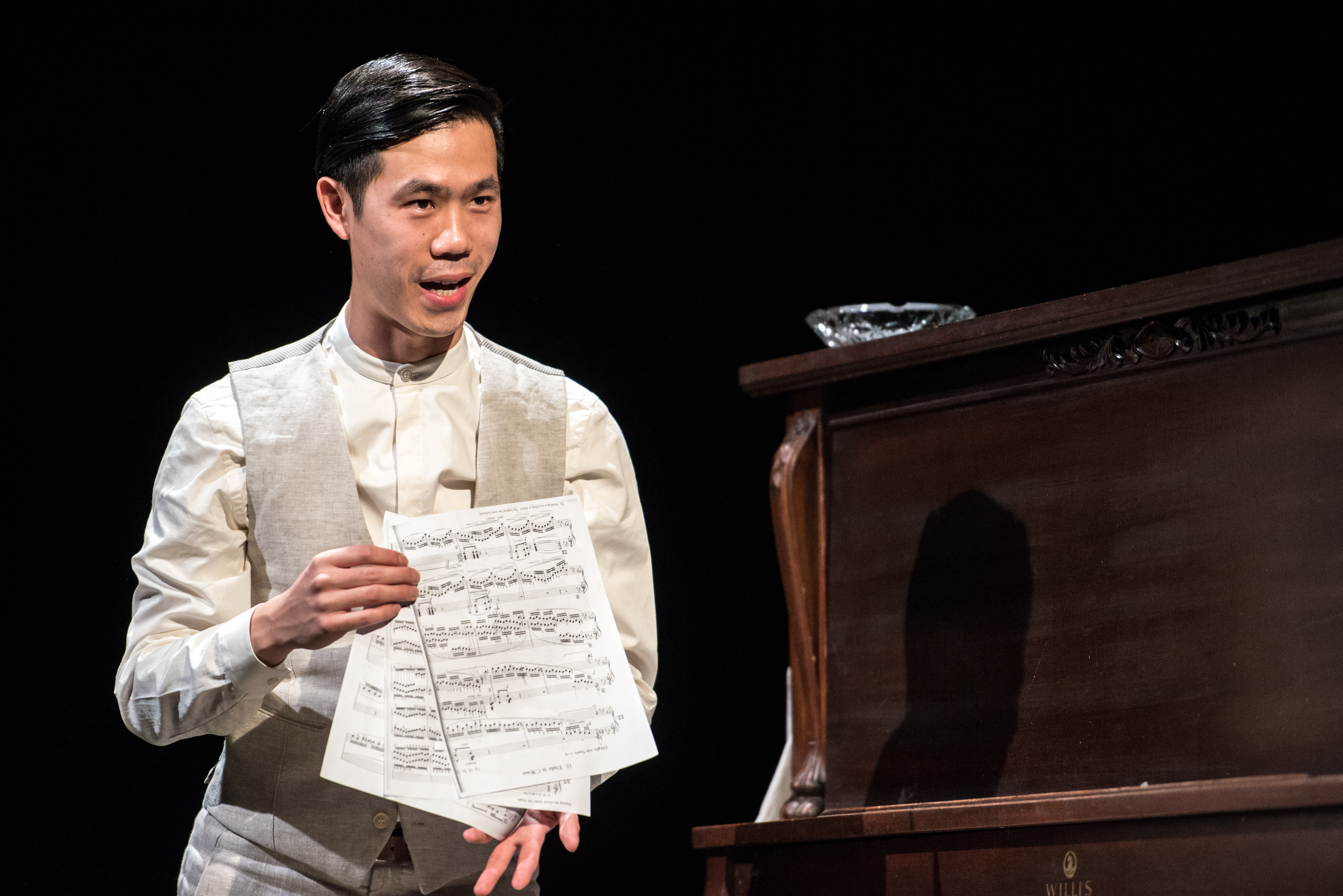
I love how you took a serious topic, with some exceptionally heart-wrenching stories and found the humour in the tales. For example, the game of Mahjong becomes a central theme, giving balance to the personal tragedies. When you started to conceptualize the work, did you envision taking a light-hearted approach?
In its first iteration, trace was rather dark and full of gore and horrors. As we began clarifying the story, and identify the need to articulate my familial bloodline, I began interviewing my mom and started to see, witness, realize how in the cracks of all these difficult stories of survival are these gems of light that peak out and push us to survive. We must laugh, love, and live in the face of all odds. It’s ingrained in us as humans. The comedy found it’s way rather organically, to remind us/me how much joy there is in a game of mah jong (even if playing the game is for survival).
I am a first generation Canadian, with parents who each immigrated to Canada at different times for different reasons. Both have their parents and siblings in Italy, so I’ve grown up with a foot in each culture, speaking two languages and living in two different countries. Can you tell me what the experience of growing up between cultures was like for you? Did it affect your personal relationships? Did you find yourself wanting to explore and live in both cultures. You touched upon this in the play, but I’d like to hear more.
Oh of course! As an immigrant, it often feels like the “border is my home”. This is a quote from one of my theatre idol’s Guillermo Verdecchia’s plays, Fronteras Americanas, and it feels so true to me. I count in Cantonese still, but I dream in English now. I crave food from home more than any steak or bowl of chicken noodle soup could ever quench.
These nuances of living a life from both cultures is certainly not my own, but the reality of juggling these dual identities in one makes its way in everything I am. My relationship to my partner (I don’t say I love you enough, because that’s not how Chinese culture operates), my relationship to status, my relationship to food, to music, to EVERYTHING, so of course, it found it’s way into my writing too. In a piece where I speak in Cantonese, accented English, and largely Western Classical music!
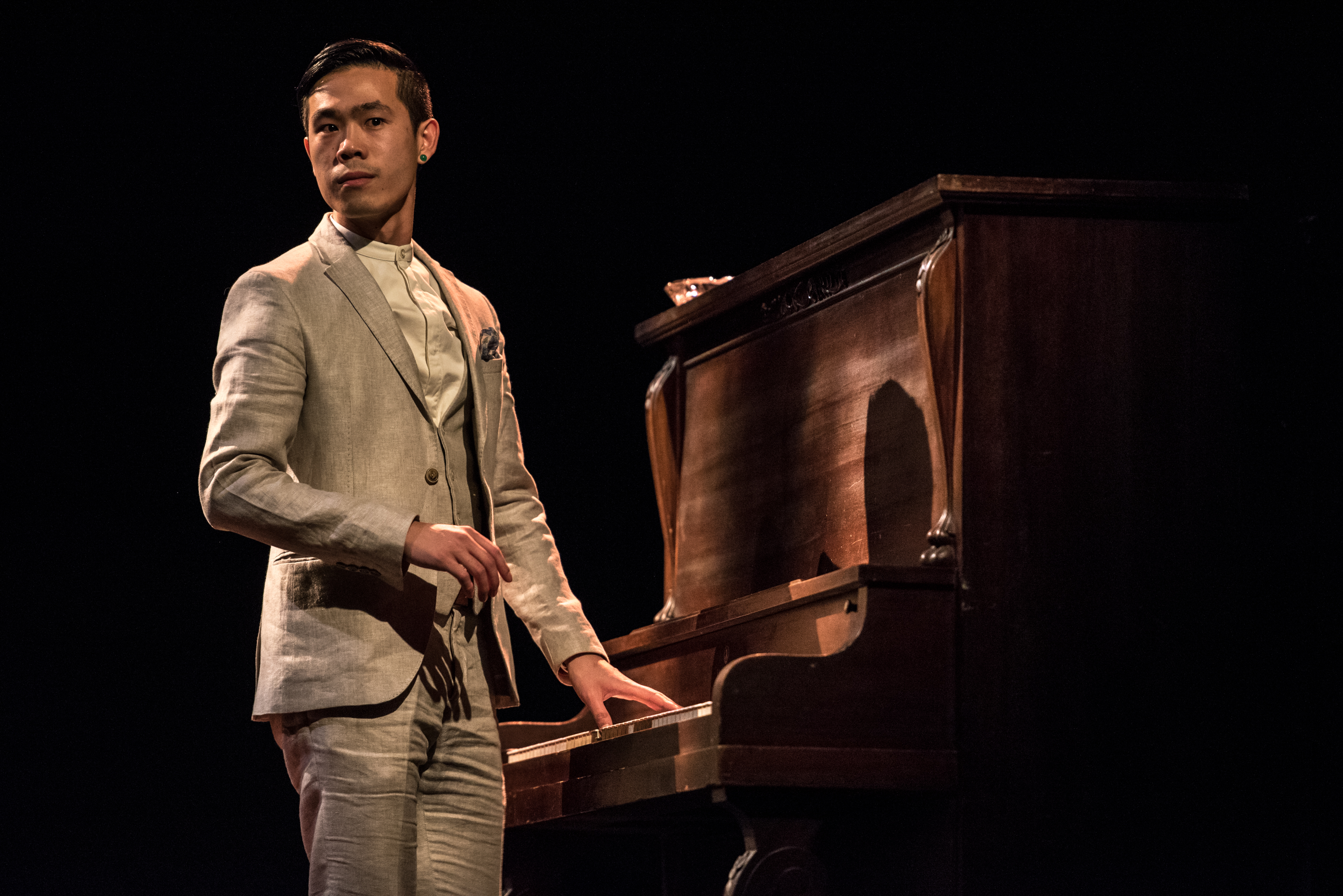
You are a classical musician, but as we learned in the play your mother was very much against you pursuing music as a career, leading you to run away. Can you explain how you balanced playing the piano, becoming a theatre artist and your mother’s expectations of you.
I didn’t balance my mother’s expectations very well, that’s why I left. I crumbled under the academic pressure, as well as my desires to pursue my calling. I couldn’t balance it, and I still don’t think I can. May be it’s not so black and white for others, but in my household it felt like: stay and become an academic, gain stability and familial approval, or leave and become an artist, and win my own freedom and life, loving every moment of being an artist. The latter overtook me, and here I am today still trying to balance the complexity of expectations and core basic life.
I really appreciated the way you structured the play in sonata form, and used music to represent male characters and actions. Can you tell me about why you chose the 5 movement Piano Sonata, with Prelude and Coda and how music inspired you?
We discovered the difficulty and complexity of piecing together over a hundred years worth of familial memories. At first I wrote it out entirely linearly, and that was boring, and when does memory, for any of us, work that neatly? So we needed to find a different logic to approach the structure of the piece, and we found that music, with it’s abstractions and affinity for emotion, could really contain these memories by rhythmic/melodic logic. So we settled on a sonata form, since so many of my earlier attempts at music were indeed Sonatas (Beethoven, I’m looking at you!)
Any advice for young musicians or artists who want to pursue their craft full-time?
It’s okay not to know what you’re doing, just be really in love and passionate. Cynicism is easy to fall into. Fight it, and fight for the love and NEED to do what you do. Nina said to me in rehearsals, “pursue the light,” and I do my best to do that. It’s hard, it’s easy to beat yourself up, to compare yourself to other artists, to feel doubt…but nothing in life is easy, eh?
One other piece of advice would be – THERE ARE NO RULES. DON’T LISTEN TO ANYONE WHO SAYS SO. In the confusion and the chaos of making art, all the fighting, all the struggling, that’s all a part of it. What is uncomfortable is very useful in art-making (as long as it’s safe and not truly detrimental to your health – please eat).
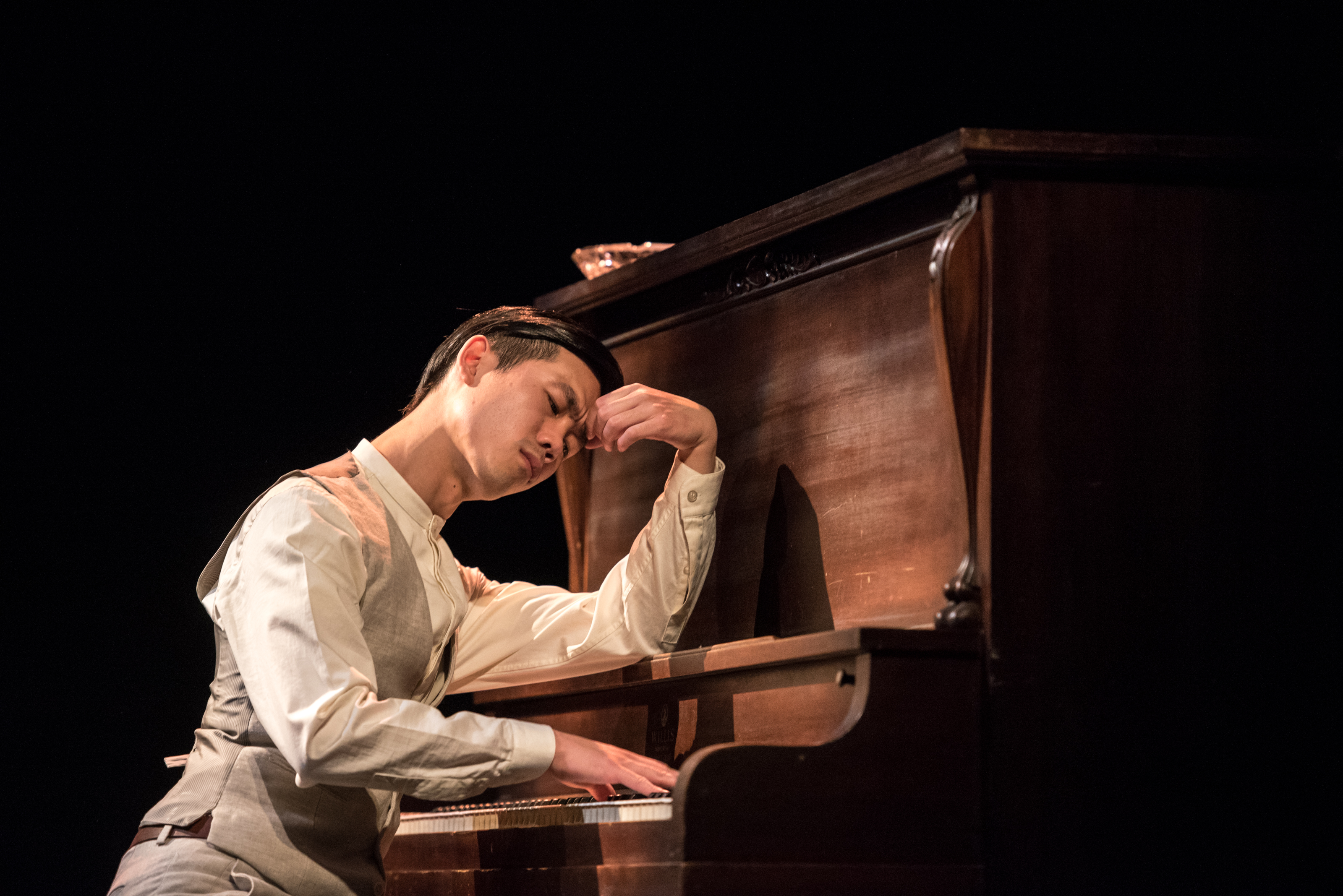
Do you still take piano lessons?
I do not. I have not had the same availability to do so, but I certainly want to take singing lessons!
Are you a full-time performer or, as is often the case, do you balance creating art with another profession?
I am fortunate in that I am a full-time artist. I balance performing, writing, and facilitating others art (as a dramaturg or a consultant for designers)
making processes for a living, and that, I recognize, is rare. I am very grateful and fortunate.
What is the one thing you hope audiences will take away from the experience of watching trace?
We inherit so many things of our ancestors. We are never truly alone. Your life was raised up through the work and lives of so many before us.
Cherish life, in a time where it’s so easy to “other” others, to wield hate rather than love.
Cherish life.
What is your next project?
I continue my next writing project, an adaptation of the greek classic, antigone, through the lens of Tiananmen Square and the Hong Kong Umbrella protests. It’s a writing commission with Young People’s Theatre and has a cast of EIGHT! To move from a solo show to writing a piece with eight is going to be a great new learning opportunity!
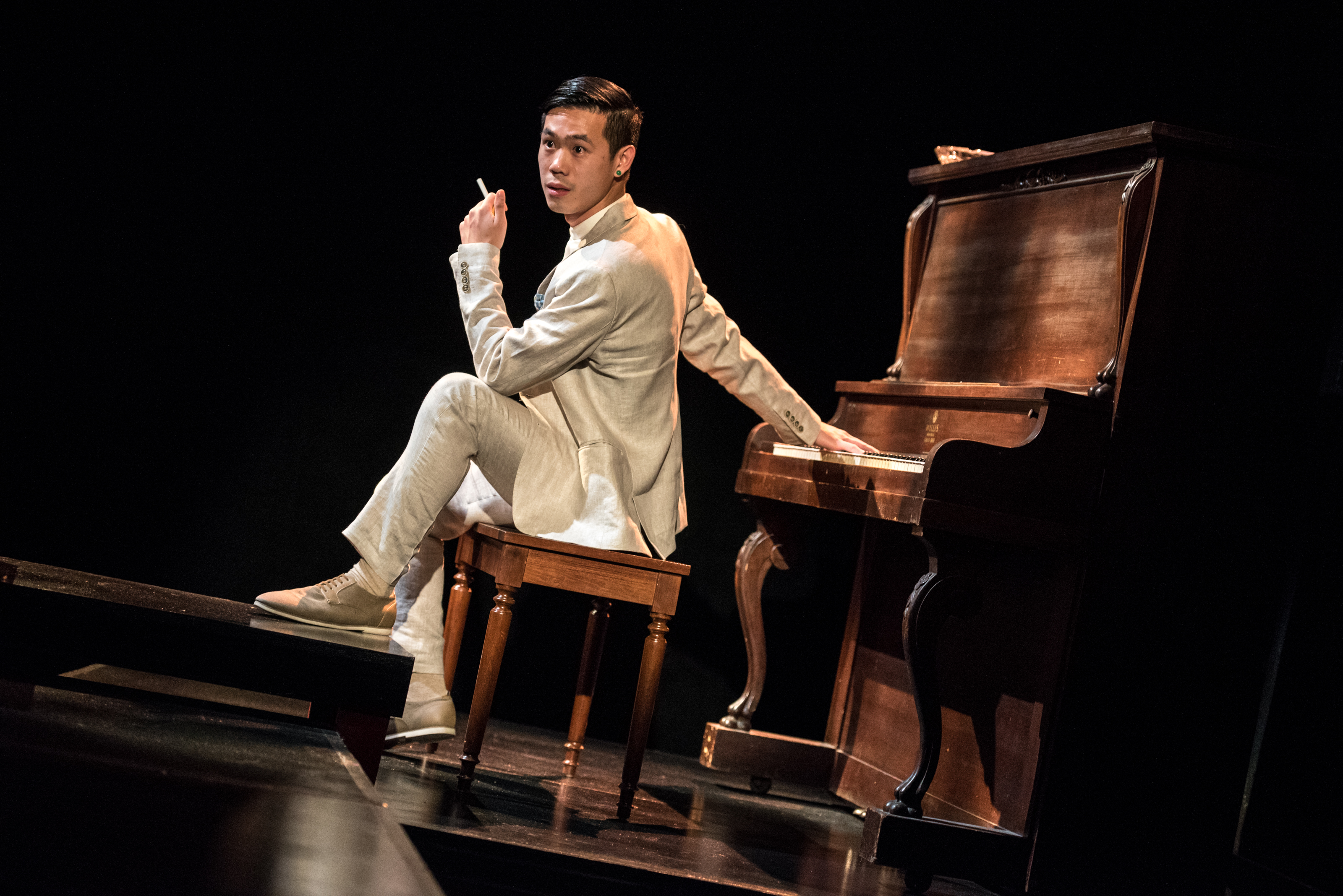
Photos by Dahlia Katz
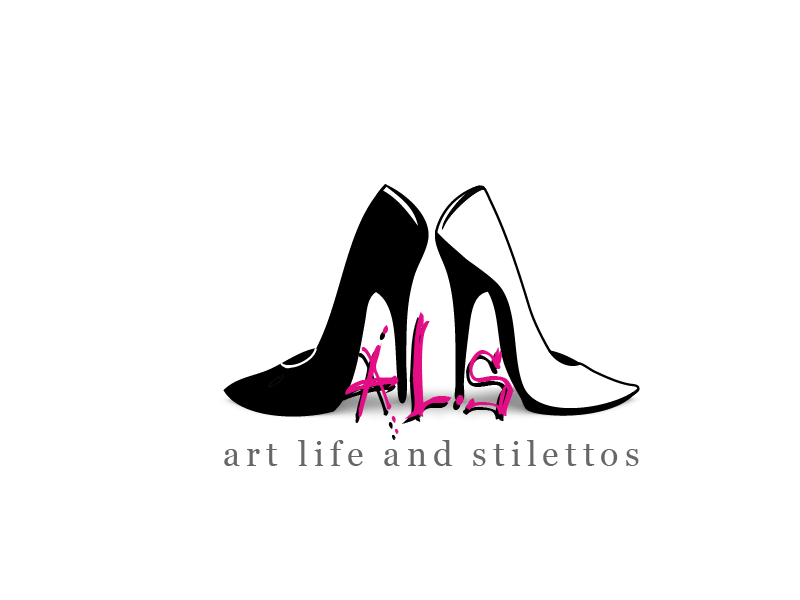
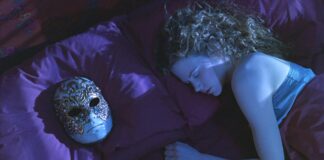
[…] this artist profile? You should read about playwright and actor Jeff Ho. His play trace is described […]